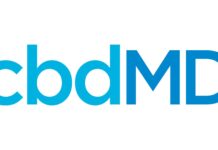Joint Statement Outlines Guidance on Diabetes Self-Management Education, Support
American Diabetes Association, American Association of Diabetes Educators and the Academy of Nutrition and Dietetics Encourage Providers to Refer Patients at Four Critical Life Junctures
BOSTON, June 5, 2015 /PRNewswire-HISPANIC PR WIRE/ — A joint position statement outlining when, how and what type of Diabetes Self-Management Education and Support (DSME/S) should be delivered to patients is being released today at the American Diabetes Association’s 75th Scientific Sessions. The statement is also being published online concurrently in Diabetes Care, The Diabetes Educator and the Journal of the Academy of Nutrition and Dietetics.
Logo – http://photos.prnewswire.com/prnh/20141105/156803LOGO
The statement – written by representatives of the American Diabetes Association, American Association of Diabetes Educators (AADE) and the Academy of Nutrition and Dietetics (AND) – provides an algorithm with guidance to healthcare providers regarding when to refer patients with diabetes to Certified Diabetes Educators and other trained staff for education and support. DSME/S, recognizing that the person with diabetes is their own primary care provider, refers to the information and skills people with diabetes need for proper self-care and the support they need to implement those skills and behaviors.
Specifically, the statement highlights four critical times for assessing the need for DSME/S referral: at diagnosis; on an annual basis; when new complicating factors influence self-management and, lastly, when transitions in care occur. The statement also provides guidance on the type of information and support patients might need at these critical junctures. For example, the guidelines suggest that immediately following diagnosis, education should focus on safety concerns, coping with the diagnosis and the process of incorporating self-management into daily life. Annual assessments would review and reassess treatment goals and self-management needs, problem-solving skills, make any needed adjustments to therapy and address any concerns or questions the patient may have. Complicating factors could include new health conditions or physical limitations. Life transitions and changes in health status would require more personalized information and support to help patients address individual needs. The algorithm also outlines the content to be taught, roles and action steps recommended for both the referring provider and for the diabetes educator.
“We have algorithms for when and how to advance medication for patients with diabetes, but there has never been an algorithm for starting and advancing self-management education,” said Margaret Powers, PhD, RD, CDE, Research Scientist at the International Diabetes Center at Park Nicollet and President-Elect, Health Care and Education, for the American Diabetes Association. “If you ask clinicians when should diabetes education occur, you’ll get a variety of answers. We needed a clear set of guiding principles for when to provide and how to assess a patient’s needs for DSME/S. This document provides that necessary guidance.”
Research has shown that DSME/S improves diabetes outcomes, including helping to reduce A1C levels; reducing the onset and/or advancement of diabetes complications; improving lifestyle behaviors, such as eating a more healthful diet and exercising more frequently and decreasing diabetes-related distress and depression. Studies have also shown it to be cost effective by reducing hospital admissions and readmissions.
“We know that diabetes education works,” said Joan Bardsley, MBA, RN, CDE, FAADE, Assistant Vice President of Medstar Health Research Institute and Immediate Past President of the American Association of Diabetes Educators. “But one of the major gaps we have seen is that there aren’t a lot of providers who will routinely refer patients to diabetes educators. Either they don’t know how to make these referrals, can’t find an educator or don’t understand how valuable diabetes education can be for people living with diabetes.”
“Yet those referrals are critical,” said Linda Siminerio, RN, PhD, CDE, Professor of Medicine at the University of Pittsburgh and Chair of the National Diabetes Education Program. “Referrals influence patient behavior a great deal. When providers refer patients to diabetes education, we see an 83 percent participation rate, but without those referrals participation is abysmally low. If patients believe their physicians think diabetes education is important, they take it a lot more seriously. Patients trust their providers.”
Bardsley emphasized that education and support are needed throughout a person’s lifetime, not just at diagnosis. “Diabetes is a chronic disease, and what a patient needs changes over time,” she said. “That’s why it’s important that people are referred not just one time, but many times throughout their lives, to ensure they are getting all of the information and support that they need to properly manage their diabetes as they go through the different stages of life.”
“I think that diabetes education has always been acknowledged as a key part of diabetes care,” said Melinda Maryniuk, M.Ed., R.D., C.D.E., Director of Care Programs at Joslin Diabetes Center, who represented the Academy of Nutrition and Dietetics on the working group that crafted the position statement. “But some physicians don’t realize what’s really involved in diabetes education. This document outlines the key elements of diabetes education and support and when we think they are most needed, so primary care physicians and endocrinologists can recognize that it’s more than telling someone at diagnosis, ‘Here’s how you take your insulin.'”
The American Diabetes Association is leading the fight to Stop Diabetes® and its deadly consequences and fighting for those affected by diabetes. The Association funds research to prevent, cure and manage diabetes; delivers services to hundreds of communities; provides objective and credible information; and gives voice to those denied their rights because of diabetes. For the past 75 years, our mission has been to prevent and cure diabetes and to improve the lives of all people affected by diabetes. For more information please call the American Diabetes Association at 1-800-DIABETES (800-342-2383) or visit diabetes.org. Information from both these sources is available in English and Spanish.






